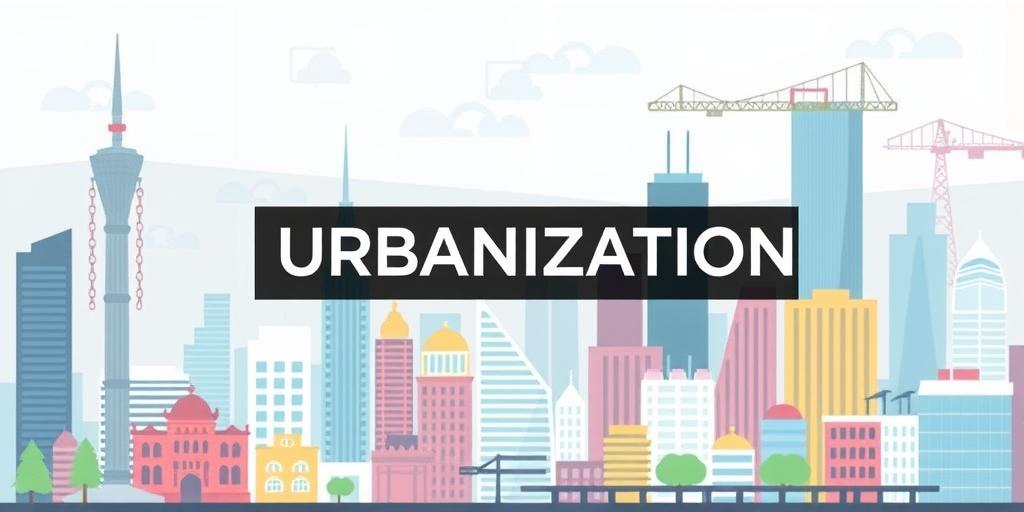Hey everyone! Let's talk about something super interesting (and maybe a little mind-bending): the economics of urbanization. You know, how cities actually work from a financial perspective? It's way more complex than you might think.
First off, what even is urbanization? It's basically the increasing number of people living in cities. Sounds simple, right? But the economic implications are huge. We're talking about land prices, job markets, infrastructure costs… the list goes on! Think of it like this: more people = more demand for everything. More demand = higher prices (usually!).
One of the biggest things driving urbanization is, of course, job opportunities. People move to cities to find work, which creates a kind of snowball effect. More workers mean more businesses, which means even more jobs. It's a cycle! But it's not always a pretty one. Increased competition for jobs can also lead to lower wages in some sectors, which is something we definitely need to consider.
Then there's the issue of infrastructure. Cities need roads, public transportation, utilities – the whole shebang. All of this costs money, and as cities grow, so do these costs. How do cities pay for it all? Taxes, mostly. But managing that balance between growth and affordability is a constant juggling act for city planners. It's like trying to solve a giant, complicated puzzle.
Let’s be real, there are downsides too. Overcrowding, pollution, and the widening gap between rich and poor are all common challenges in rapidly growing cities. These are serious issues that need to be addressed, and often, they require creative and innovative solutions. I mean, have you ever tried navigating rush hour traffic in a major city? It's a nightmare! But, it's all part of this intricate economic dance.
What’s fascinating is how different cities approach these challenges. Some prioritize public transportation, others focus on sustainable development, and still others grapple with issues of inequality. It's a case study in how different economic models can play out in a real-world setting. It's also a reminder that there's no one-size-fits-all solution. Each city has its own unique set of circumstances.
I know, this is wild — but stay with me! There's so much more to explore. We could talk about the role of technology, the impact of globalization, or even the environmental consequences of urbanization. The possibilities are endless!
Have you tried to understand the economic forces at play in your own city? Would love to hear your take!









